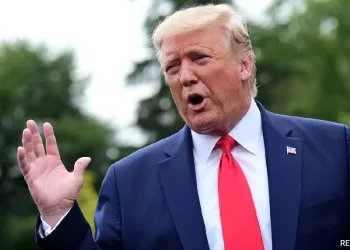The increasing concern over the governance of digital platforms globally, coupled with growing mistrust among policymakers, raises significant issues, especially considering the benefits of technological innovations. Many governments have adopted a confrontational stance: if you don’t adhere to our regulations, you won’t access our markets. This adversarial approach can stifle innovation and undermine potential advantages.
A critical issue is that many regulators lack the technical expertise to develop effective governance models. Moreover, the reluctance of major tech companies to engage constructively with stakeholders in media and technology could lead to extreme measures that may be harmful.
Information is a public good essential for promoting and realizing human rights. In discussions about information integrity, it’s vital to ensure that governance interventions address not just the source and recipient of information but also the channels—namely, digital platforms.
Given the complexities surrounding finance, research, and technology, governments may struggle to keep pace with large tech firms. Laws alone may not suffice, and may even push African nations toward drastic measures, including clawback laws and internet shutdowns.
African governments urgently need to leverage existing frameworks, such as the African Union, to engage tech companies in a unified effort to mitigate the harms associated with digital platforms. Addressing these issues at a continental level, rather than leaving individual countries to implement national regulations, is essential.
The challenges involved—design, systems, and processes—transcend national boundaries, making a collaborative approach imperative. Given that big tech firms often view Africa as a minor market, language barriers and the necessity for extensive content moderation may deter their engagement.
Regulators in media and communications across Africa must recognize the need for a continental strategy. Advising governments to adopt a co-regulation model, which involves collaboration among governments, regulators, academics, civil society, and tech experts, is critical.
The rapid technological advancements driven by global powers pose challenges for Africa, highlighting the need for a united front. The African Union’s recent strategy on Artificial Intelligence is a positive step; now, a continental governance framework for digital platforms is urgently required.
In addition to protecting minors—an international concern regarding information sharing—issues of online safety, information integrity, and disinformation must be addressed. With the African Continental Free Trade Area becoming a reality, harnessing technology to enhance a pan-African approach to digital platform governance is crucial.
While tech companies are increasingly implementing standards to combat harmful content, further efforts are necessary. They are employing machine learning and AI tools to detect policy violations and collaborating with third-party fact-checkers to combat misinformation.
UNESCO’s Social Media for Peace initiative, piloted in four countries, demonstrates the effectiveness of building coalitions among civil society organizations, regulators, and tech companies to tackle harmful content and disinformation. This model should be adopted across Africa to strengthen the collective effort to engage tech companies.
With support from UNESCO and the EU, Kenya has formed a national coalition of content regulators aimed at improving content management and ensuring that harmful information is not disseminated.
This approach suggests a potential new concept of regulated self-regulation, which can be strengthened through co-regulation, as seen in other regions. Europe’s regional governance strategies highlight that what works in those contexts may not be suitable for Africa, necessitating tailored negotiations that address Africa’s unique challenges.
Navigating Digital Governance: A Call for Continental Collaboration in Africa
Plugin Install : Subscribe Push Notification need OneSignal plugin to be installed.

















